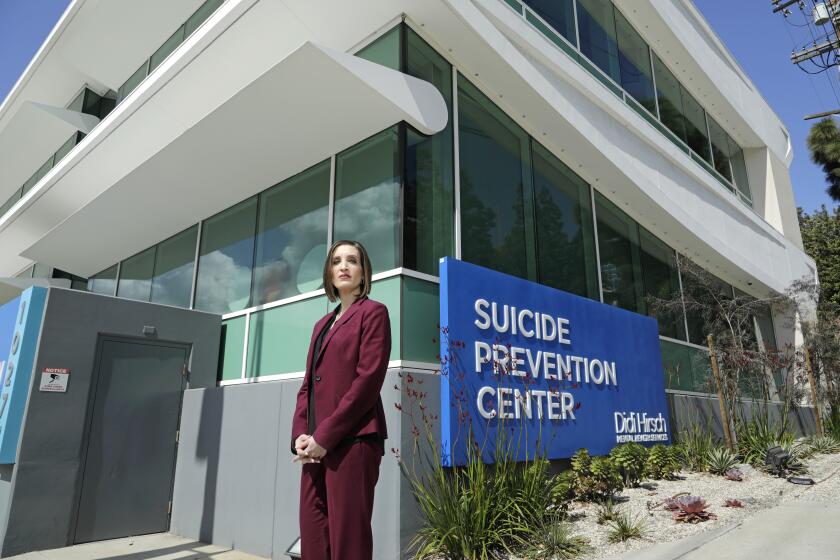LAPD program diverting suicide calls to counselors expands to 24 hours

- Share via
A pilot program to divert 911 calls from people experiencing suicidal thoughts to certified mental health providers instead of Los Angeles police officers is being expanded into a 24-hour operation.
The amended contract, approved by the civilian Police Commission on Tuesday, increases the LAPD’s one-year pilot with Didi Hirsch Mental Health Services from an eight-hour per day operation to an around-the-clock service.
The expansion increases the cost of the program from $378,522 to $838,522.
The initial contract went into effect in February, one of several programs touted by police and city officials as reducing the city’s reliance on armed police officers in situations in which those requesting help would be better served by mental health or other trained professionals.
Antipolice protesters have called for the LAPD to be defunded in favor of programs that rely on mental health workers, homeless outreach workers and other social service providers. At the same time, police officials have said they are happy to hand off certain calls that don’t require an armed response, especially given that the department has hundreds fewer officers than it did before the pandemic.
Crisis counselors at Didi Hirsch in Century City, whose job it is to reassure, now need some reassurance of their own — because the coronavirus knows no boundaries.
The Didi Hirsch pilot focuses on 911 calls from people who are “in suicidal crisis or in severe emotional distress,” and is aimed at reducing the number of encounters “between police and persons suffering from a mental health crisis by diverting nonimminent suicide calls” to Didi Hirsch crisis counselors.
Those counselors can offer “de-escalation and assessment,” and connect callers with additional resources and follow-up care programs.
LAPD Capt. Brian Bixler, who helps oversee the program, told the Police Commission on Tuesday that 424 calls have been diverted under the program since February, and 51 people were subsequently connected with follow-up services.
He said that figure is lower than police had hoped for, but there is room for improvement with the expansion of the program to a 24/7 operation — for multiple reasons.
In recent months, Bixler said officials have found some city dispatchers weren’t redirecting calls to Didi Hirsch because they normally worked at times when the pilot wasn’t running and weren’t familiar with it, or because they were uncomfortable relying on the counselors to resolve matters that they felt a police officer might be better suited to handle.
As the pilot moves forward, Bixler said he and his counterparts at Didi Hirsch will continue efforts to expose all their workers on both sides of the operation to the program and its benefits, including by allowing dispatchers to sit in at Didi Hirsch’s suicide prevention center to get a better understanding of the work they do.
More to Read
Sign up for Essential California
The most important California stories and recommendations in your inbox every morning.
You may occasionally receive promotional content from the Los Angeles Times.












